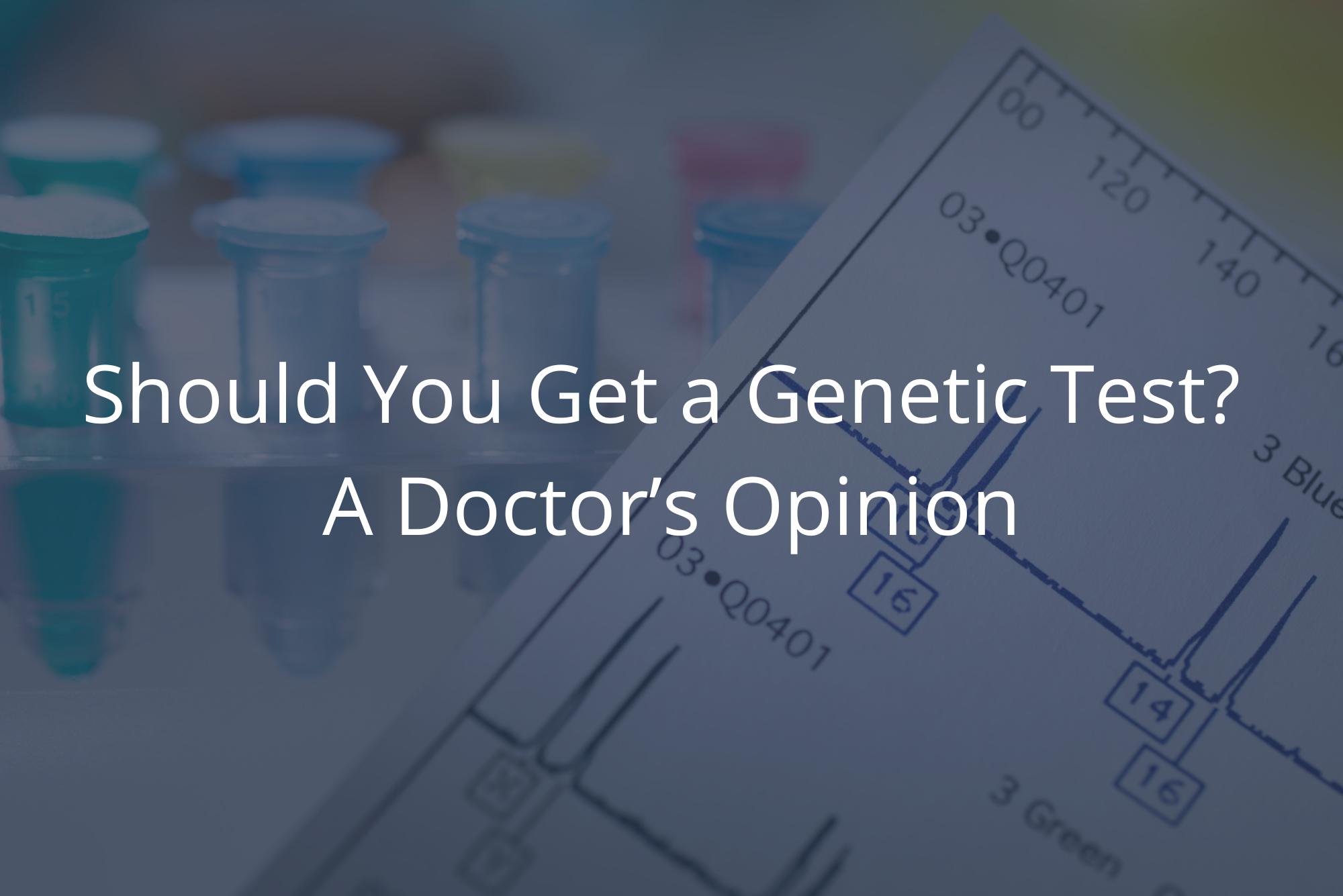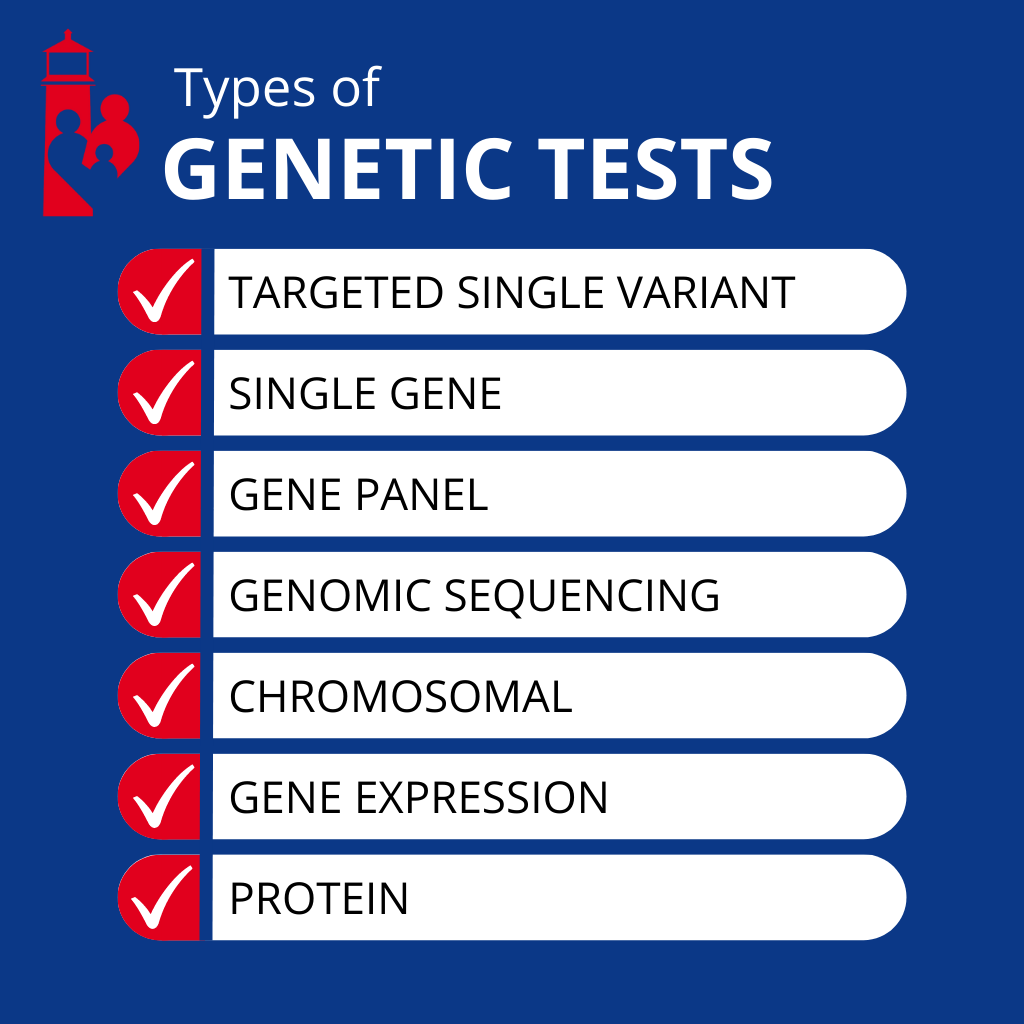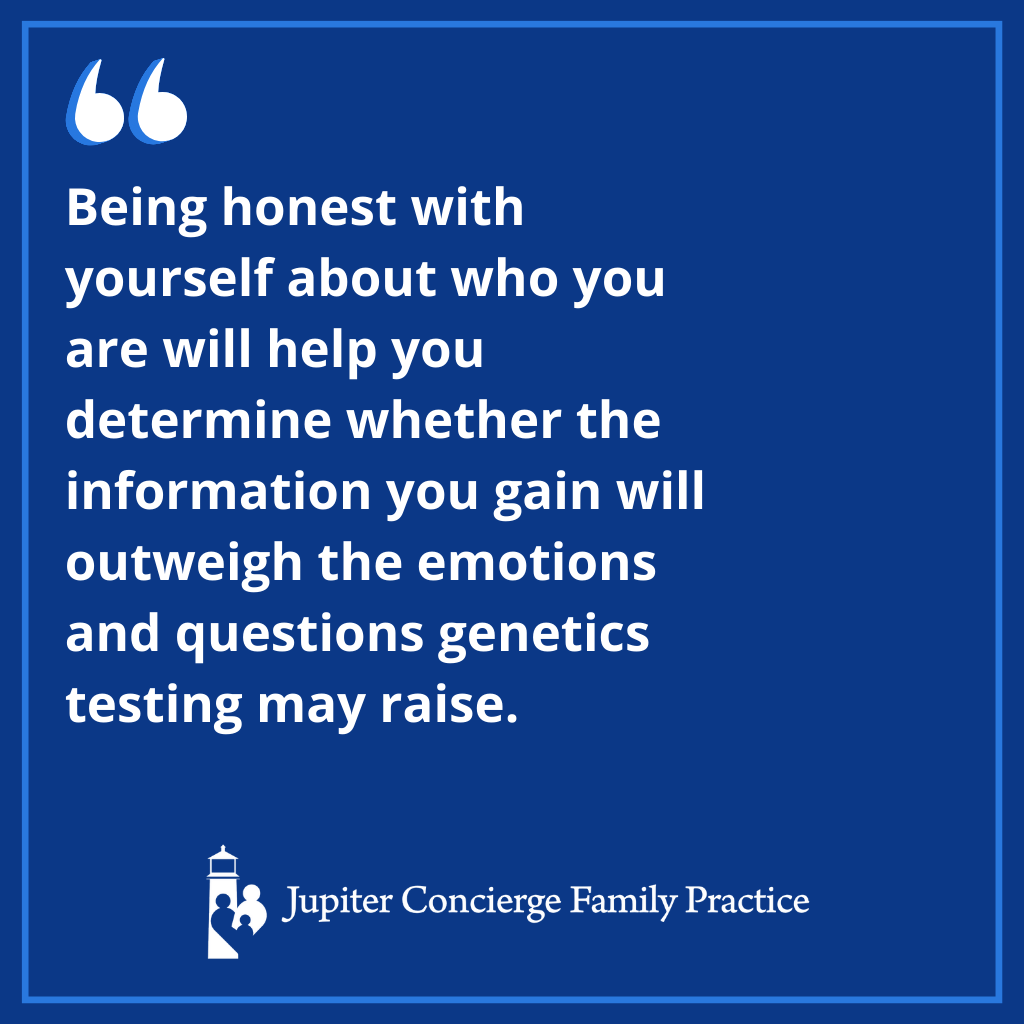
Should I get genetic testing?
The question is more complicated than it first seems, because genetic testing itself is complicated.
In this context, of course, we’re not referring so much to ancestry-related testing as to genetic testing with a medical focus. To aid your considerations regarding genetic testing, here we’ll look at what this type of testing is, what it’s used for, and its major pros and cons.
What Is Genetic Testing?
A genetic test — also called a DNA test — helps us determine what diseases our genetics predispose us to, whether we already have a genetic disease, or whether we are a carrier of a genetic disease.
The Cleveland Clinic’s definition is a good one: “A DNA test (genetic testing) is a medical test that can identify mutations in your genes, chromosomes or proteins. These mutations can indicate if you have or don’t have a genetic condition. DNA tests can also identify your risk for developing a certain condition or passing on a genetic disorder.”
There are hundreds, if not thousands, of different genetic tests available today, but the types of testing fall into only a handful of categories:
- Targeted single variant — tests one gene for a specific variant that causes a specific disorder
- Single gene — tests one gene for any variants that cause a specific disorder
- Gene panel — tests multiple genes for variants
- Genomic sequencing — tests all or most of a person’s genes for variants
- Chromosomal — tests chromosomes (long strings of genes) for missing, rearranged, or extra DNA
- Gene expression — tests cellular mRNA to determine which genes are “turned on” and “turned off”
- Protein — tests cellular protein activity to detect underlying genetic abnormalities
Most genetic testing is relatively easy to undergo. It can be as simple as a cheek swab (also known as a buccal swab) or blood test. The simplicity of testing is one of the reasons so many people are interested in getting them. But does it make sense?
Should You Get Genetic Testing?
If you’re asking yourself, “Should I get genetic testing,” the first step is to determine what you’re trying to learn. This is the biggest factor in whether genetic testing will make sense for you.
People turn to genetic testing for many reasons. Are you looking for a diagnosis of an existing problem? Are you questioning your susceptibility to a future problem? Are you and your significant other worried about genetic risks for future children?
Remember, nothing is without consequence; getting information about your genes can be a mixed bag. For example, as you saw above, genetic testing can be broad or narrow in scope. Typically, the more information you get, the less specific that information will be.
Let’s explore the pros and cons of genetic testing.
The Downsides
Complication. The results of genetic testing can be extremely complicated, both in terms of the data it returns and the emotions it elicits. In fact, this is exactly why we have genetic counselors, people whose job it is to interpret and integrate genetic testing results.
Unnecessary worry. Genetic testing results aren’t necessarily predictive. Simply having a certain genetic variant doesn’t mean that gene will be expressed. In other words, you might have a genetic predisposition or marker for a disease you will never develop. However, merely knowing you have the gene can cause overwhelming anxiety and depression.
Insurance problems. Another risk is the possibility of becoming uninsurable based on the results of your test. It’s (more or less) illegal for health insurance companies to deny coverage based on the results of genetic testing. But the same government source that describes the illegality also states, “It is unclear whether genetic information, including the results of direct-to-consumer genetic testing, will become a standard part of the risk assessment that insurance companies undertake when making coverage decisions.”
Besides health insurance, states have their own laws about life insurance and disability insurance policies related to genetic testing. The point is, genetic testing could have unintended consequences, and there’s no untaking the test once it’s done.
The Upsides
Diagnosing existing disorders. If you develop symptoms of certain diseases, genetic testing can help doctors reach a definitive diagnosis and treatment.
Providing preventive opportunities. If testing reveals you have a genetic predisposition for a certain disease, you can use that information to make lifestyle changes that help keep those specific genes down-regulated, not up-regulated.
Final Thoughts: To Test or Not To Test?
So, should you get genetic testing? I recommend really taking time to think about what you’ll do with your results. Will they make a practical difference in your life or diagnose an existing problem? Will they frighten you or have a poor effect on your psychological health?
Being honest with yourself about who you are will help you determine whether the information you gain will outweigh the emotions and questions testing may raise.
If there’s not likely to be a net gain, do yourself a favor and skip the test. If, however, genetic answers will help you live a healthier lifestyle, it may be worthwhile.


